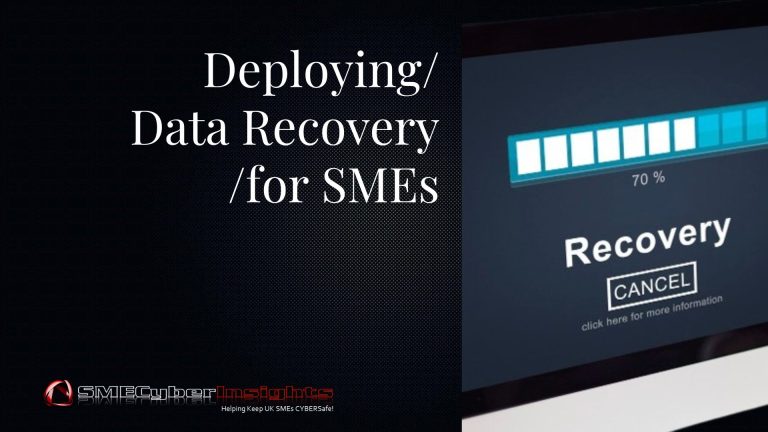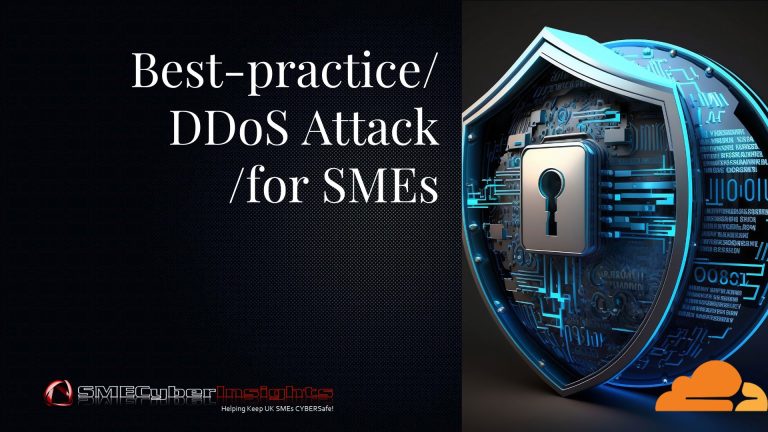Helping Keep Small Business CYBERSafe
Málaga: Saturday, 19 July 2025 at 12:00 CEST
REPORTAGE: Major UK Cyber Firm Adarma Enters Administration: What This Means for SMEs
By Iain Fraser/Reportage & Andy Jenkinson
SMECyberInsights.co.uk – First for SME Cybersecurity
#SMECyberInsights #SMECyberSecurity #SMECyberAwareness #CyberSafe #SME #SmallBusiness #Reportage #MSP #Adarma #InAdministration
Executive Summary
Adarma Limited, the Edinburgh-headquartered Cybersecurity firm that generated £44.7 million in turnover during 2023, has entered administration with the immediate loss of 173 jobs. Will Wright and Alistair McAlinden of Interpath Advisory were appointed as joint administrators, marking a significant disruption in the UK’s Cybersecurity services landscape.
This collapse carries profound implications for SMEs and enterprise clients who relied on Adarma’s managed security services, particularly given the firm’s specialization in serving FTSE 350 organizations and critical national infrastructure.
The Collapse: Financial Pressures and Strategic Failures
Revenue Decline and Cash Flow Crisis
Adarma’s financial troubles stemmed from a perfect storm of client losses and funding failures. The company reported turnover of £44.7 million in 2023, representing a decline from £47.4 million in 2022. More critically, post-tax losses widened dramatically from approximately £10,000 to over £80,000.
The primary catalyst was the non-renewal of a three-year contract with Nationwide Building Society after 2022, which created substantial revenue gaps. Despite management claims that the firm’s “run rate had recovered by the end of the year,” the loss of another major customer in 2024 proved fatal to the company’s cash flow position.
Failed Rescue Attempts
Directors actively pursued fresh investment and potential buyers but were ultimately unsuccessful in securing the necessary funding. The firm saw a change in leadership in September 2024, with Chris Shaw coming in as CEO, and Ronnie McComb serving as Chairman, suggesting last-ditch efforts to stabilize operations.
Critical Impact on SME Cybersecurity Landscape
Service Disruption Risks
The immediate cessation of Adarma’s operations creates significant security gaps for client organizations. Adarma served organisations in a range of industries, including financial services, critical national infrastructure, and highly targeted organisations, meaning the disruption extends beyond individual companies to potentially affect national security infrastructure.
For SMEs that relied on Adarma’s co-managed security services, this collapse represents a critical vulnerability window. Unlike enterprise clients with internal security teams, SMEs often depend entirely on external providers for:
* 24/7 security monitoring and incident response
* Threat detection and analysis
* Compliance management
* Security infrastructure maintenance
* Vulnerability assessments
Market Consolidation Implications
Adarma’s collapse reduces competition in the UK Cybersecurity services market, potentially leading to:
* Increased pricing pressure as remaining providers face reduced competitive pressure
* Service capacity constraints as competitors absorb displaced clients
* Talent redistribution with 173 experienced Cybersecurity professionals entering the job market
* Technology partnership disruptions affecting integrated security solutions
Client Impact Analysis: Immediate and Long-term Consequences
Immediate Risks for Former Clients
Organizations that relied on Adarma face several critical immediate risks:
1. Security Monitoring Gaps: Loss of 24/7 security operations centre (SOC) monitoring
2. Incident Response Delays: Absence of established incident response protocols
3. Compliance Violations: Potential regulatory breaches due to inadequate security oversight
4. Data Protection Concerns: Uncertainty about data handling and retention policies
Transition Challenges for SMEs
SMEs face particular challenges in transitioning to new Cybersecurity providers:
* Limited Internal Expertise: Most SMEs lack the technical knowledge to evaluate replacement providers effectively
* Budget Constraints: Urgent procurement may result in suboptimal pricing negotiations
* Implementation Delays: New provider onboarding typically requires 30-90 days
* Knowledge Transfer Gaps: Loss of organization-specific security context and threat intelligence
Strategic Implications for the Cybersecurity Industry
Market Concentration Concerns
Adarma’s collapse highlights the vulnerability of the UK’s Cybersecurity infrastructure to market concentration. As one of the largest independent security services companies in the UK, its failure reduces the number of viable alternatives for enterprise and SME clients.
Financial Stability in Cybersecurity Services
The collapse raises questions about the financial sustainability of Cybersecurity service providers, particularly those dependent on large enterprise contracts. The loss of Nationwide’s contract demonstrates how client concentration can create existential risks for even well-established firms.
Recommendations for SMEs and Enterprise Clients
Immediate Actions
1. Conduct Emergency Security Assessment: Evaluate current security posture and identify critical gaps
2. Implement Interim Measures: Deploy temporary monitoring solutions and enhance logging
3. Accelerate Vendor Selection: Prioritise Cybersecurity provider evaluation and procurement
4. Review Cyber Insurance Coverage: Ensure policies cover transition-related security incidents
Long-term Strategic Considerations
1. Diversify Security Providers: Avoid over-reliance on single vendors for critical security functions
2. Build Internal Capabilities: Develop minimum viable internal security expertise
3. Establish Vendor Financial Monitoring: Regularly assess provider financial stability
4. Create Contingency Plans: Develop procedures for rapid provider transitions
Market Outlook and Industry Evolution
Talent Market Impact
The 173 redundant staff, including 120 at the Edinburgh office, represent a significant injection of experienced Cybersecurity professionals into the job market. This could benefit other providers expanding their capabilities but also indicates the industry’s volatility.
Regulatory Implications
The collapse of a major Cybersecurity provider serving critical national infrastructure may prompt regulatory reviews of:
* Provider financial stability requirements
* Business continuity planning mandates
* Client transition protection mechanisms
* Market concentration thresholds
Conclusion: Lessons for SME Cybersecurity Strategy
Adarma’s administration serves as a stark reminder that Cybersecurity is not just about technology but also about vendor stability and risk management. For SMEs in particular, this event underscores the critical importance of:
* Diversifying cybersecurity service providers
* Building internal security awareness and capabilities
* Maintaining updated incident response plans
* Regularly assessing vendor financial health
The Cybersecurity industry’s rapid growth has created both opportunities and vulnerabilities. As the market matures, SMEs must balance cost considerations with resilience planning, ensuring that their security posture remains robust even when facing provider disruptions.
Organizations affected by Adarma’s collapse should treat this as an opportunity to strengthen their overall Cybersecurity strategy, implementing lessons learned about vendor risk management and operational resilience that will serve them well in an increasingly complex threat landscape.
UK Small Business Owner? Join SMECyber Free Now! & Access the SME Cyber Forum – Read, Learn, Engage, Share …
The Latest SME Cybersecurity News, Threat Intelligence & Analysis, Timely Scam Alerts, Best-practice Compliance, Mitigation & Resources specifically curated for UK Based SMEs in a Single Weekly Email direct to your Inbox or Smart Device together with Unrestricted Free Access to our entire SME Cyber Knowledge & Tutorial Library.

About Andy Jenkinson
Fellow Cyber Theory Institute. Director Fintech & Cyber Security Alliance (FITCA) working with Governments. Recognised Expert in Internet Asset & DNS Vulnerabilities.
Andy Jenkinson is a senior and seasoned innovative Executive with over 30 years’ experience as a hands-on lateral thinking CEO, coach, and leader.






































